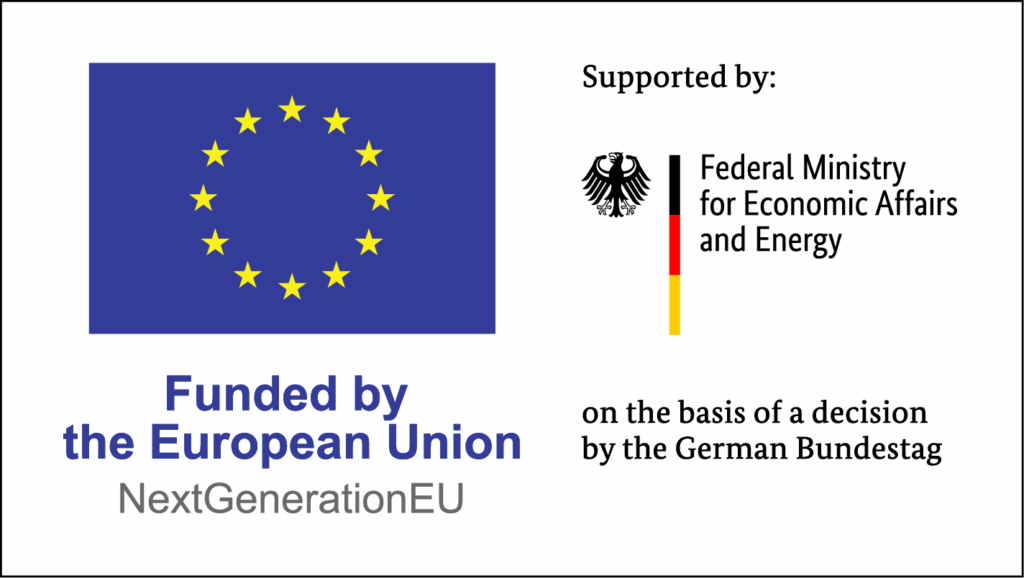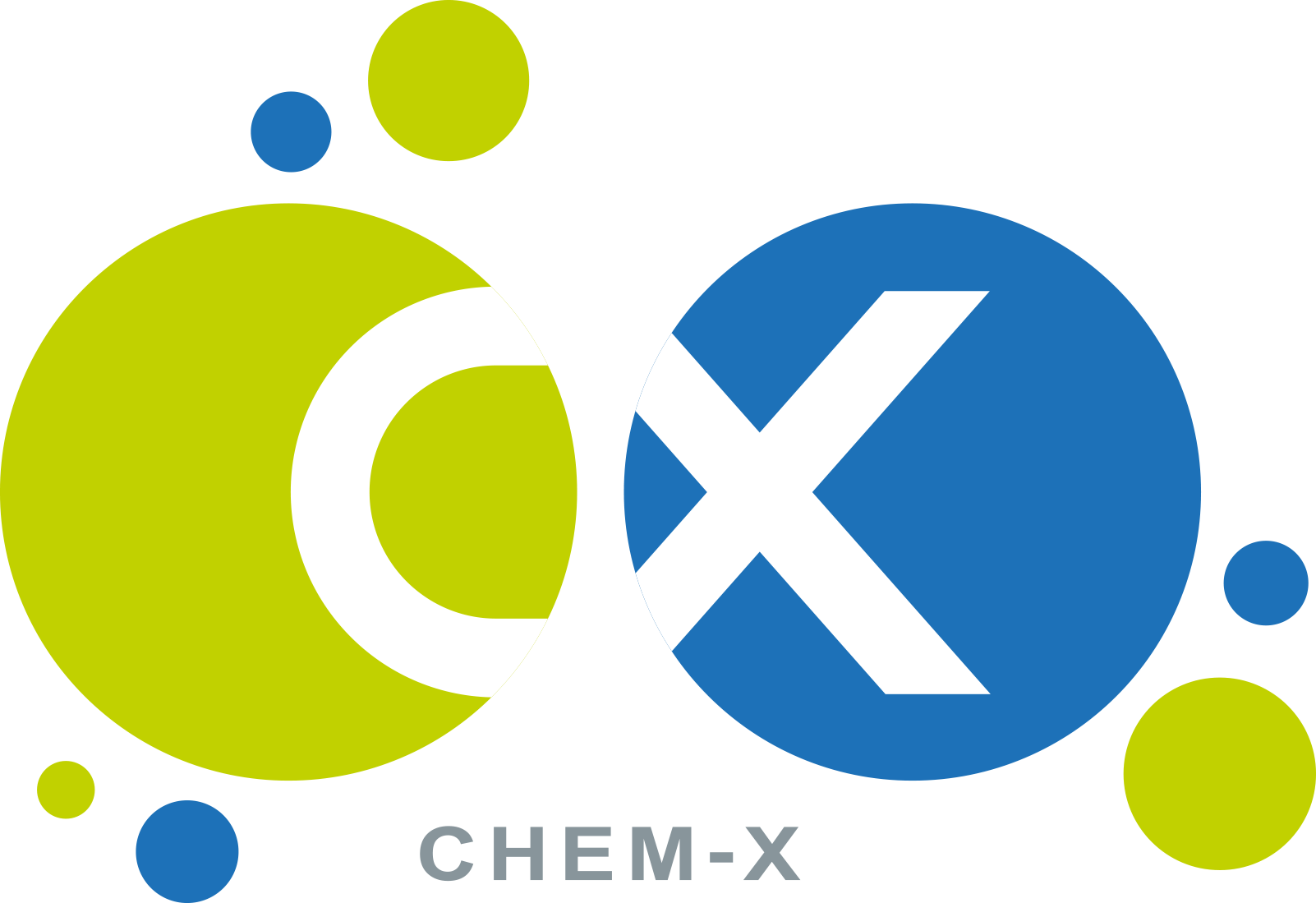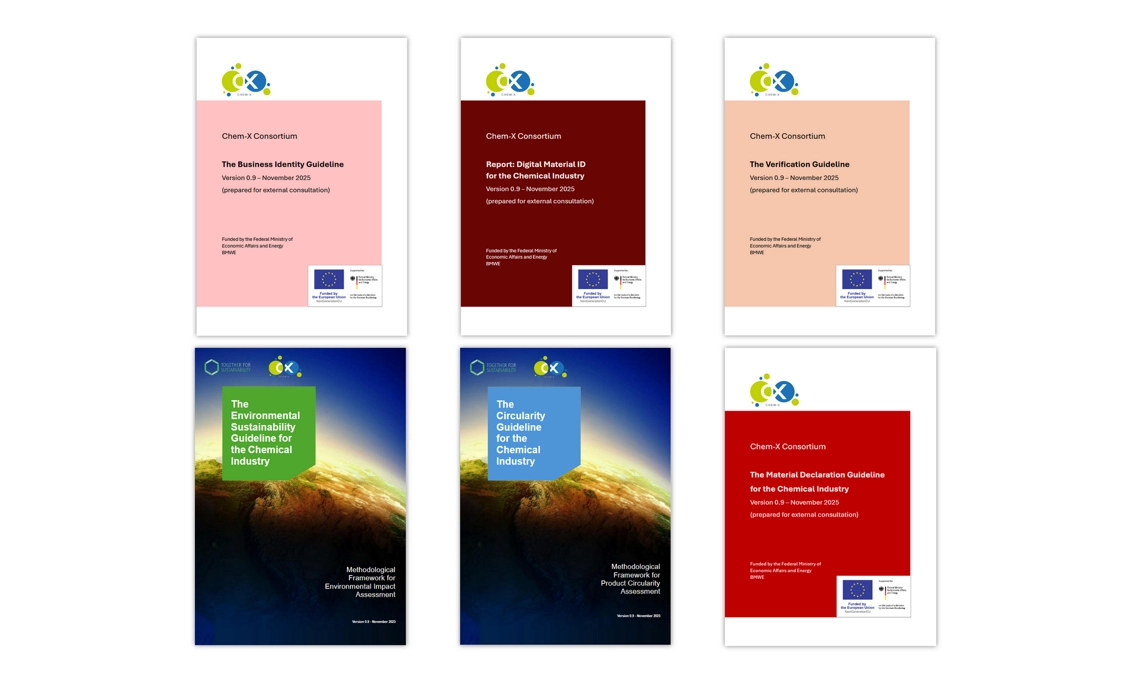Empowering the chemical industry with digital standards for competitiveness, sustainability, and resilience
Chem-X is transforming the chemical industry with cutting-edge digital standards and solutions.
We enhance supply chain efficiency, enable transparent communication of sustainability metrics like carbon footprints, and strengthen industry resilience through digital tools. By fostering interoperability, sustainability, and adaptability, Chem-X empowers stakeholders to innovate and thrive in a rapidly evolving market.
Chem-X is a publicly funded project by the Bundesministerium für Wirtschaft und Energie (BMWE).

The chemical industry and the raw material sector are central to the economic stability and growth of modern economies. In Germany, the chemical-pharmaceutical industry generates around 225 billion euros annually and provides millions of jobs. It is closely linked to key industries such as the automotive, construction, electronics and pharmaceutical industry sectors, which rely on chemical products such as plastics and paints. This dependency makes the chemical industry indispensable for the efficiency and quality of manufacturing processes in these sectors.
Why Chem-X?
With new challenges in the industry including rising energy and raw material costs and sustainability goals, three main goals are relevant to Chem-X:
1
Competitiveness
Chem-X aims to improve interoperability and efficiency in the supply chain by clearly defining
chemistry-specific data points and establishing technical standards.
These standards enable stakeholders to exchange data securely and efficiently,
which strengthens the competitive position of the chemical industry.
Sustainability
The definition of an open-source (OS) data model for chemicals enables transparent communication of sustainability features such as the product carbon footprint (PCF) or recycled content across the value chain. Suppliers of sustainable chemicals can thus differentiate themselves and pass on this information via digital product passports along the value chain all the way to the end customer.
2
3
Resilience
Chem-X supports the chemical industry in improving its resilience.
By using digital technologies, such as a digital material twin and a standardised exchange of material data, the industry can respond more flexibly and quickly to market changes.



